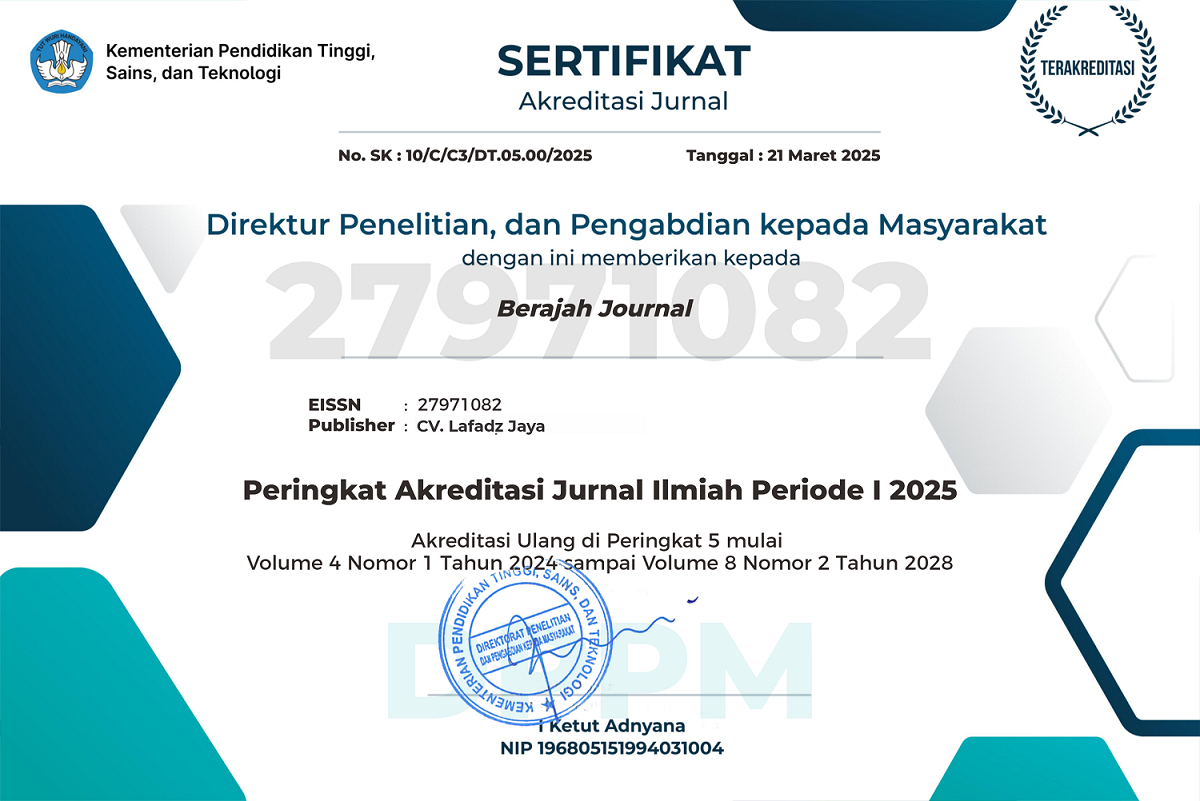SOCIAL MEDIA AS AN EMOTIONAL OUTLET FOR WOMEN: AN ANALYSIS OF EMOTIONAL REGULATION PROCESSES FROM A MENTAL HEALTH PERSPECTIVE
DOI:
https://doi.org/10.47353/bj.v4i7.445Keywords:
Emotional regulation, women's mental health, social media, emotional expressionAbstract
The role of social media in shaping emotional expression and mental health has become a critical area of study, especially concerning women. This research investigates how women utilize social media platforms as spaces for emotional regulation, analyzing the effects on mental health from an emotional regulation framework. Drawing from qualitative interviews and content analysis, this study examines the patterns through which women express, manage, and seek support for their emotions online. The findings reveal a dual impact of social media on women's mental health. While platforms provide a supportive space for self-expression, connection, and validation, they also present challenges, such as privacy concerns, exposure to negative feedback, and the risk of emotional fatigue due to constant social comparison. These challenges highlight a paradoxical relationship, where social media acts as both a tool for emotional resilience and a source of stress. This study contributes to an understanding of the complexities in digital emotional regulation, offering insights into how women navigate emotional well-being within a digital context. The findings underscore the importance of awareness around the positive and negative impacts of digital emotional spaces and offer implications for enhancing supportive online environments for mental health.
Downloads
References
Afriani, E., & Herdiansyah, H. (2018). Dampak media sosial terhadap kesehatan mental remaja di Indonesia. Jurnal Psikologi Indonesia, 7(1), 45-56.
Braun, V., & Clarke, V. (2006). Using thematic analysis in psychology. Qualitative Research in Psychology, 3(2), 77-101.
Chou, H. T. G., & Edge, N. (2012). "They are happier and having better lives than I am": The impact of using Facebook on perceptions of others' lives. Cyberpsychology, Behavior, and Social Networking, 15(2), 117-121.
Duggan, M. (2014). Online harassment. Pew Research Center. Retrieved from https://www.pewresearch.org
Effendy, N. (2015). Psikologi Komunikasi. Bandung: PT Remaja Rosdakarya.
Fadli, I., & Kusuma, P. (2019). Pengaruh media sosial terhadap regulasi emosi pada mahasiswa. Jurnal Psikologi Pendidikan dan Perkembangan, 8(2), 65-72.
Feinstein, B. A., Hershenberg, R., Bhatia, V., Latack, J. A., Meuwly, N., & Davila, J. (2013). Negative social comparison on Facebook and depressive symptoms: Rumination as a mechanism. Psychology of Popular Media Culture, 2(3), 161.
Fox, J., & Moreland, J. J. (2015). The dark side of social networking sites: An exploration of the relational and psychological stressors associated with Facebook use and affordances. Computers in Human Behavior, 45, 168-176.
Gross, J. J. (1998). The emerging field of emotion regulation: An integrative review. Review of General Psychology, 2(3), 271-299.
Hanna, E., Ward, L. M., Seabrook, R. C., Jerald, M., Reed, L., Giaccardi, S., & Lippman, J. R. (2017). Contributions of social comparison and self-objectification in the relationship between Facebook use and emergent adults' psychological well-being. Cyberpsychology, Behavior, and Social Networking, 20(3), 172-179.
Hidayati, F., & Pratiwi, A. (2020). Media sosial sebagai alat untuk regulasi emosi dan dampaknya terhadap kesejahteraan psikologis. Jurnal Psikologi Udayana, 11(2), 150-160.
Jordan, A. H., Monin, B., Dweck, C. S., Lovett, B. J., John, O. P., & Gross, J. J. (2018). Misery has more company than people think: Underestimating the prevalence of others' negative emotions. Personality and Social Psychology Bulletin, 44(1), 85-102.
Kim, J., & Lee, J.-E. R. (2011). The Facebook paths to happiness: Effects of the number of Facebook friends and self-presentation on subjective well-being. Cyberpsychology, Behavior, and Social Networking, 14(6), 359-364.
Marwick, A. E., & Boyd, D. (2011). To see and be seen: Celebrity practice on Twitter. Convergence, 17(2), 139-158.
Prasetyo, M. E., & Santosa, H. (2019). Dampak sosial media pada kesehatan mental remaja: Analisis persepsi dan perilaku. Jurnal Psikologi dan Kesehatan Mental, 5(3), 107-115.
Perloff, R. M. (2014). Social media effects on young women’s body image concerns: Theoretical perspectives and an agenda for research. Sex Roles, 71(11), 363-377.
Downloads
Published
How to Cite
Issue
Section
License
Copyright (c) 2024 Ajeng Fajarwati Sumarna

This work is licensed under a Creative Commons Attribution 4.0 International License.






















